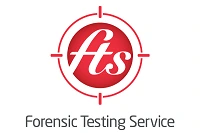Sponsored articles
Unlocking legal talent
How hair strand testing should be instructed for family court proceedings
Section 117 aftercare policy of council and integrated care board “flawed”, finds Ombudsman
An investigation by the Local Government and Social Care Ombudsman has criticised Kent County Council and NHS Kent and Medway Integrated Care Board’s “flawed” section 117 aftercare policy, which caused a woman “confusion, uncertainty and distress”.
- Details
The woman behind the complaint, Ms F, complained that the council had asked her to fund part of her section 117 accommodation using housing benefit.
The Ombudsman said: “She says the council and NHS Kent and Medway Integrated Care Board’s (the ICB) policy is flawed. It says people should pay their rent, service charges and utilities even if they are in ‘specialist accommodation’ provided under Section 117.”
Outlining the background to the case, the Ombudsman said that in 2021, the courts detained Ms F under a section of the Mental Health Act.
In October 2021, a hospital trust (not subject to this investigation) discharged Ms F. At that point, she was eligible for section 117 aftercare.
Ms F took an overdose of medication in 2022, which led to the hospital trust admitting her.
In mid-2024, the council carried out a care needs assessment, which identified that Ms F would likely need a supported living placement on discharge from hospital.
At the same time, Ms F asked the council questions about supported living and section 117 aftercare. The council told her that if she moved into supported living she would need to contribute towards her rent, utilities and service charges, according to its multi-agency policy. That was because supported living was not a specialised need.
The report stated: “Ms F did not understand why supported living could not be considered as 'accommodation plus'. The council told her it would fund the care she would receive under Section 117, but not the rent, because the supported living placement would not need adaptations for her mental health.”
In October and November 2024, Ms F raised complaints to the council.
In mid-November 2024, the council said it was sorry for the confusion caused by the contradictions in its Generalised and Multi-Agency Policy around supported living and costs. It amended the Generalised Policy as a result.
At the same time, the council completed Ms F’s draft care and support plan. It highlighted she would need a supported living placement on discharge.
On 11 December 2024, the council and ICB agreed to provide section 117 aftercare funding for a supported living placement.
It said: “it is clear [Ms F] is not accessing the significant consequences on her risk (overdose prior to informal admission), supported living with 25 hours 1:1 would be the least restrictive and appropriate measure, under s117, to mitigate further convictions as well as hospital admission…”
Four days later, Ms F complained to the Ombudsman.
Considering the complaint, the Ombudsman said: “The council has two policies around Section 117. Those policies provided contradictory information about Section 117 and accommodation. During the complaints process, the council recognised the disparity between the two policies. It decided the Generalised Policy did not reflect its view on Section 117 and accommodation costs.
“So, I have considered if the Multi-Agency Policy falls in line with the MHA and Code of Practice. I am not satisfied it does, which is fault.”
The Ombudsman observed that in Ms F’s case, the council had been clear it would not fund the rent, utilities or service charges of a supported living placement - because it did not meet the criteria of “accommodation plus”.
The Ombudsman added: “However, I have not seen any evidence the Council has completed a specific assessment of Ms F’s Section 117 needs, in line with the CPA. Also, there is no detailed analysis why the supported living placement does not meet the criteria of “accommodation plus”. The council’s draft care plan in November 2024 does not include that detail. That was fault, and not in line with the Code.”
The Ombudsman considered the council and ICB’s flawed Multi-Agency Policy to have caused Ms F “uncertainty and distress”.
To remedy the injustice caused, the Ombudsman recommended the council and ICB:
- write to Ms F to acknowledge the fault identified in the decision.
- pay Ms F £500 as a symbolic acknowledgement of the confusion, uncertainty and distress caused to her.
- carry out a joint review of their Multi-Agency Policy (specifically sections 4.9 and 6.2) to ensure it falls in line with the MHA and Code of Practice’s approach to Section 117 and accommodation.
The report added: “Once the Council and ICB have completed that review of the Multi-Agency policy, within a further four weeks, they should contact Ms F to offer to arrange a comprehensive assessment of Ms F’s Section 117 aftercare needs, to support her discharge from her current hospital admission. If they decide Ms F will need accommodation on discharge from hospital, it should include a detailed analysis explaining if that placement meets the criteria for “accommodation plus”.
“During my investigation, the Council and ICB told me ‘There are approximately 250 people who have been identified that might be paying rent in the context of supported living, who receive Section 117 after-care’.
“Based on the Council and ICB’s flawed Multi-Agency Policy, some of those people may be unnecessarily paying towards their accommodation. Therefore, as part of individual service users’ Section 117 annual review process, the Council and ICB should review if those people’s supported living placement forms part of their Section 117 aftercare.”
Speaking on behalf of Kent County Council and NHS Kent and Medway, a spokesperson said: "We are committed to ensuring residents are fully supported during recovery and are working together to agree how we take forward the Ombudsman's findings."
Lottie Winson




































